The paradox of Rishi Sunak’s premiership is that even though he became Prime Minister because of the economy, it’s the issue on which many of his party disagree with him the most. He resigned as chancellor not because of partygate but because his fiscal conservatism was ‘fundamentally too different’ to Boris Johnson’s stance on the economy – tax less, borrow more. He lost the leadership contest last summer after he played down the prospect of imminent tax cuts. MPs flocked to his rival Liz Truss and only when her experiment imploded was he asked to clean up the mess.
Almost five months on, the Chancellor takes the view that the Tories’ only chance at a fifth term in office relies on making Labour seem the riskier bet on the economy: in other words, the government must not rock the boat with the spring Budget. ‘No one will be wowed by this,’ says one adviser, with an almost admirable lack of spin.
And so Jeremy Hunt has erred on the side of caution. One of his biggest splurges is on defence – £11 billion – but even this is about half of what the Ministry of Defence wanted. There is a focus on immediate help for those struggling with the cost of living – extending the £2,500 Energy Price Guarantee for an additional three months from April to June on what is viewed as a temporary and final measure before Ofgem’s price cap drops to around £2,000 in July. Wholesale gas prices are now less than a quarter of what the Treasury feared when the scheme was designed.
The good news for Sunak and Hunt is that the economic outlook is also far rosier than when the Office for Budget Responsibility gave its gloomy forecast in the autumn. The UK will avoid a technical recession this year, with the OBR expecting a contraction of 0.2 per cent. But the tax burden? In her campaign, Truss complained it was at a 77-year high. No longer. UK taxes are set to hit an all-time peacetime record of 37.7 per cent of GDP. Inflation is expected to more than halve to 2.9 per cent by the end of the year, exceeding the Prime Minister’s pledge. But inflation is also falling fast in France, Germany, Canada, Israel and the US, so it is a worldwide trend over which UK policy has limited influence.
There are plenty of measures announced this week which will upset the Conservative right. Hunt has ignored calls from Tory backbenchers, business leaders and his predecessors in No. 11 to halt the planned rise in corporation tax. Ministers argue that keeping the rate at its present level of 19 per cent would cost £18 billion which would lead to spending cuts or tax rises. Tory critics say this figure is illusory as such high taxes kill growth. The Treasury responds that the headline rate is deceptive as there are capital allowances and other get-out clauses to lower company tax bills.
While the Chancellor announced the news on Wednesday, this policy choice smacks of Sunak. The Prime Minister has long questioned George Osborne’s strategy of using corporation tax as an advertising tool, to boast about how Britain is pro-business. Sunak prefers higher headline rates with more exemptions for investment – with a new policy in the Budget of full capital expenses for the next three years. His big frustration is companies that sit on too much cash and need to be prodded to invest it.
But Britain is the only G7 country that’s raising corporation tax so much, leading one senior minister to complain that the UK ‘is just not very competitive’. There are those in government who worry that Sunak and Hunt have taken the wrong messages from the Truss mini-Budget. ‘Not all the measures they announced were bad; some were very good,’ says one minister. Such sentiments are backed by the 40-strong Conservative growth group – made up largely of former Trussites.
Sunak and Hunt hope that after a good fortnight for the Prime Minister on the issues of small boats (not a single Tory MP voted against his Illegal Migration Bill) and Northern Ireland, MPs will give the benefit of the doubt when it comes to the Budget. Sunak wants to stick closely to his five priorities, of which economic growth is viewed in the Tory party as pivotal. The jobs market is seen in the Treasury as the biggest domestic driver of inflation and drag on growth. There are 300,000 fewer workers than before the pandemic and as long as five million are on out-of-work benefits, the economy can never fire on all cylinders. The Chancellor told officials working on the Budget that ‘those who can work, should. Those who can’t, we will help’. The problem is a three-headed monster: the people on benefits, the over-fifties choosing to retire early and those not taking work because of the rising costs of childcare.
New incentives and changes will be in place to push those on benefits to be more proactive. For those unable to work due to sickness or disability, the workplace capacity assessment will be abolished in a bid to allow this group to seek employment without the risk of losing financial support. New funds have been announced focused at helping the disabled and mentally ill find work.
For parents, there is a £4 billion expansion of free childcare for one- and two-year-olds. Since Labour is keen to make childcare a dividing line at the next election, this is a measure to protect the Tories from attack – although it won’t come into effect until after the election. Hunt will also lift pension allowances for higher earners – abolishing the lifetime allowance – in a bid to discourage early retirement.
Tax cuts remain the biggest carrot that Sunak has to dangle in front of his party. Even in the leadership contest, Sunak said he backed tax cuts – it was just a matter of when. It’s why the inflation forecast is the best news low-tax Tories have received. If all goes to plan, Sunak should have no excuses not to cut taxes ahead of the 2024 general election.
Gordon Brown described his first Budget as ‘prudence with a purpose’. For Sunak, his approach could be categorised as ‘restraint now, rewards later’. The question is whether it will be too little, too late.
Got something to add? Join the discussion and comment below.
Get 10 issues for just $10
Subscribe to The Spectator Australia today for the next 10 magazine issues, plus full online access, for just $10.
You might disagree with half of it, but you’ll enjoy reading all of it. Try your first month for free, then just $2 a week for the remainder of your first year.


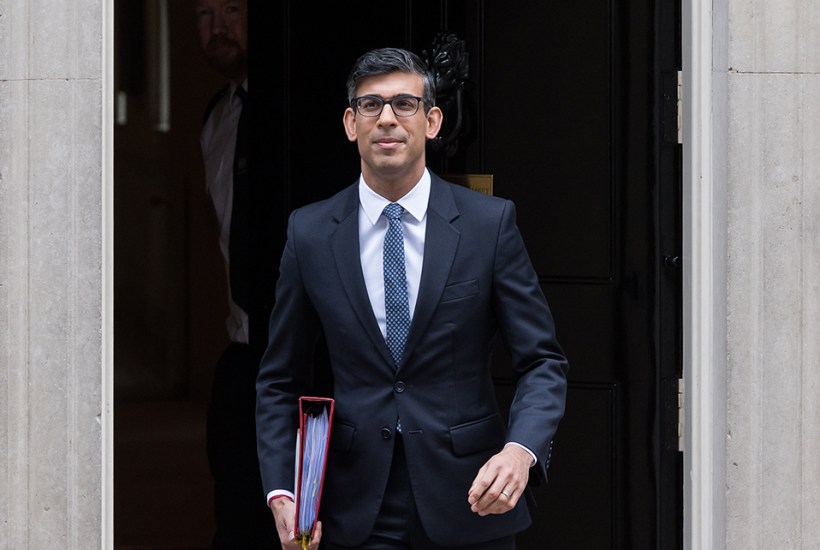
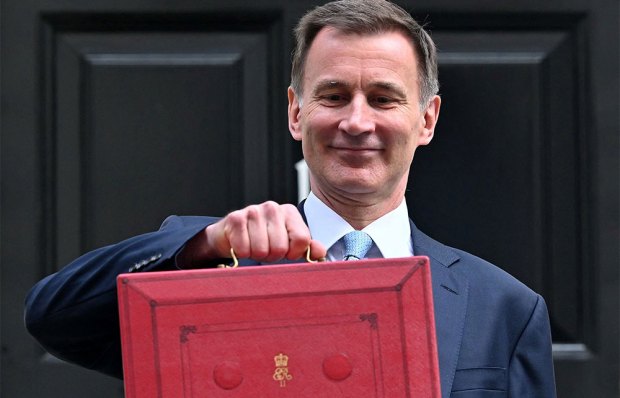
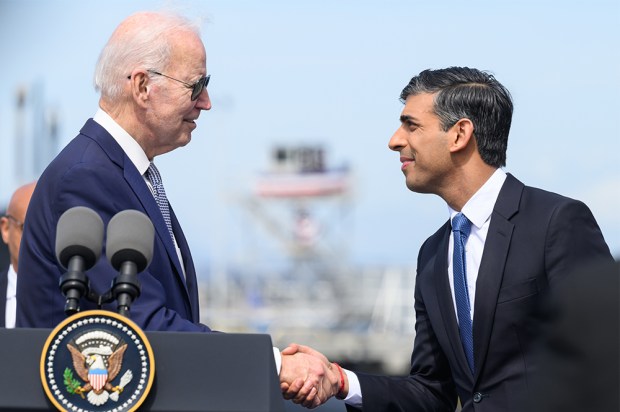
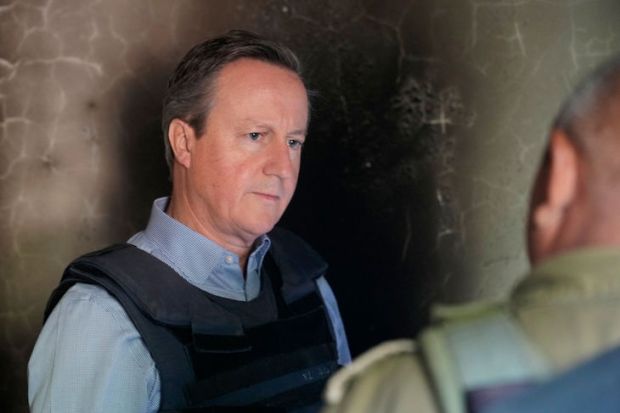
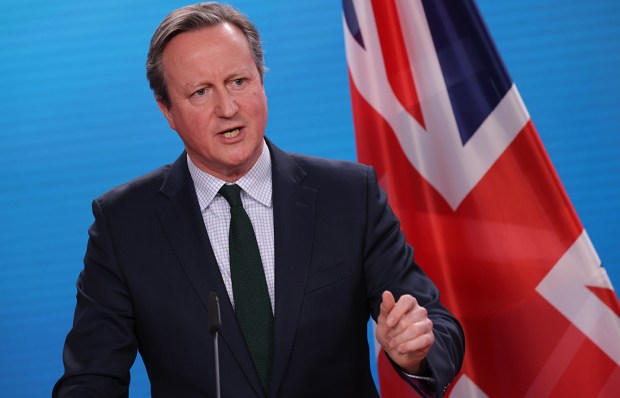








Comments
Don't miss out
Join the conversation with other Spectator Australia readers. Subscribe to leave a comment.
SUBSCRIBEAlready a subscriber? Log in